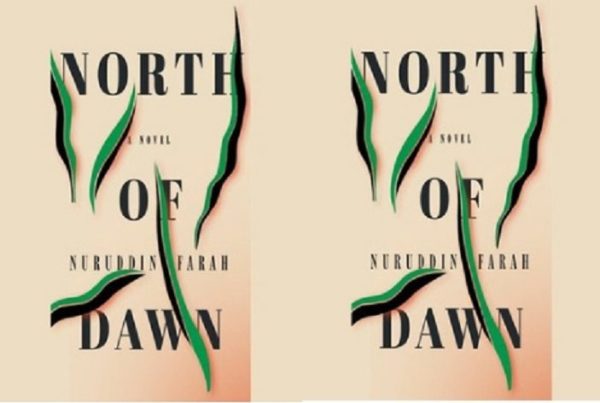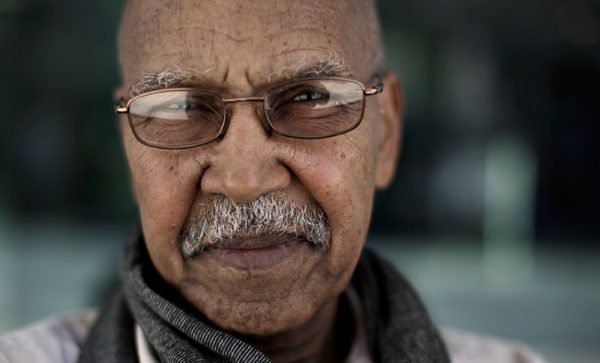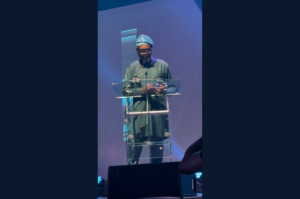
Celebrated Somali writer Nuruddin Farah’s new novel will be out on 4 December 2018. The 384-page North of Dawn—described as “a provocative, devastating story of love, loyalty, and national identity that asks whether it is ever possible to escape a legacy of violence”—is forthcoming from Penguin Random House and is the 72-year-old’s 14th novel.
North of Dawn has been praised by Kirkus Reviews: “Farah’s insistence on isolating the humanity in even the most difficult characters is a beacon of hope against fear and loathing.” And by Vanity Fair: “Farah’s entire body of work has been a testament to his country’s divisions and ultimate collapse in the wake of civil war in 1991 … In typical Farah fashion, everyone’s fate is bound together and no one is left unscathed by the ravages of extremism.”
Farah is a recipient of the Neustadt International Prize for Literature, the Premio Cavour in Italy, the Kurt Tucholsky Prize in Sweden, the Lettre Ulysses Award in Berlin, the St Malo Literature Festival’s prize, a UNESCO fellowship, the English-Speaking Union Literary Award, and a Corman Artists fellowship.
Read an excerpt from the novel below.

Chapter One
Gacalo wages an unrelenting campaign for several months, hoping that Mugdi will not stand in the way of Dhaqaneh’s widow, Waliya, and his two stepchildren joining them in Oslo. Knowing Gacalo, she will not hesitate to recruit the support of their daughter Timiro, visiting from her home in Geneva; Kaluun, Mugdi’s younger brother; their Norwegian friends Johan and Birgitta Nielsen; and Himmo, a Somali woman residing in Oslo whom Gacalo and Mugdi have grown close to and who is of the view that Gacalo should continue supporting the widow and her two children where they are, in Kenya. But Gacalo is adamant that she will not give up until Mugdi and everyone else accedes to her demand.
Inflexible, Mugdi repeatedly asks, “Why would I sponsor the wife of a son whom I forsook first and then denounced as a terrorist?”
A former ambassador in Somalia’s Ministry of Foreign Affairs just before the collapse of the state structures, Mugdi is used to having his own way. It is no secret that it irritates him to see people opposing him when their rationale does not sit well with his reasoning.
The longer the standoff lasts and Gacalo makes it obvious that she won’t settle for anything less than Mugdi’s full public endorsement of her plan, the more everyone becomes concerned. Gacalo’s inability to convince Mugdi to share her vision upsets her so much that she feels diminished, unloved, to the point that one afternoon, after yet another explosive argument, she storms out of the house, not knowing where she is going.
When she doesn’t answer her mobile phone or return home for a long time, Timiro goes out in search of her mother in the two parks close by. Not finding her at either park, she telephones Birgitta, who confirms that Gacalo is with them.
On Timiro’s way home from her search, she runs into Himmo, who has just alighted from the tram after a night shift at the hospital where she works as a nurse. Delighted by the chance encounter, the two women decide to find a cafŽ where they might chat for a bit. Timiro explains what has brought her to this area of the city, filling Himmo in on the tension at home with regard to Waliya. She says, “The atmosphere has lately turned so toxic, I can’t stand it, and I’ve told them so. I don’t recall my parents ever rowing as much as they’ve done of late, or of Mum ever raising her voice in anger, except perhaps once, when I was a child.”
“Oh? Were you a difficult girl?”
“It was more that I was young and obstinate, and desperately wanted a cat for a pet. Mum put her foot down, as having a pet would interfere with our weekend travels. I went behind her back, pleading with Dad, and he agreed without consulting her and arranged for the pet shop to deliver one. I had never heard her so angry as when she arrived home and saw the cat. In the end, however, Dad won the day and I got to keep it.”
“Maybe it is only fair that your mother has her way this time round.”
“Perhaps, but you never know with Dad, a man given to changing his mind at the very time you least expect him to.”
Himmo says, “I know what you mean. But at his heart, he is such a mild-mannered man, and I feel certain that rather than continuing to disappoint your mum, he will give in.”
Continue reading on Penguin Random House’s website.









COMMENTS -
Reader Interactions